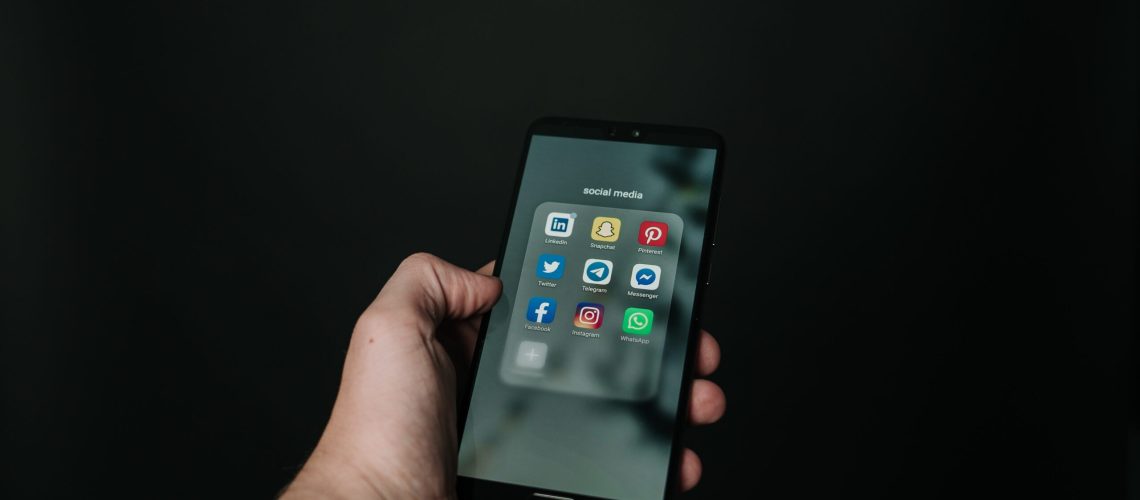Social media algorithms play a significant role in shaping our online experience. These algorithms are designed to determine what content we see in our social media feeds and in what order. The impact of social media algorithms on our online experience can be both positive and negative, and here are some ways how:
Personalization
Social media algorithms are designed to personalize our experience, so we see content that is most relevant to us. This means we are more likely to see posts from people we interact with the most and content that aligns with our interests, which can enhance our online experience.
However, this can also lead to a number of concerns about how social media companies are collecting users’ data and using it for their own benefit. As a result, many people may feel like they’re seeing less of what matters to them because of these algorithms. We believe there’s a better way forward: one that includes transparency in how companies use data, but also gives users control over what they see and when they see it.
Filter Bubble
However, personalization can also create a filter bubble, where we only see content that confirms our existing beliefs and values. This can lead to a distorted view of the world and limit our exposure to diverse perspectives and opinions.
The problem with this is compounded by the fact that algorithms are programmed by humans—and humans are biased. They often have their own political agendas and make decisions about what content should appear in your feed based on those agendas. This means that you could be missing out on news and opinions that challenge your own views—and when you don’t hear those other points of view, it may be easier for you to believe they don’t exist at all.
Engagement
Social media algorithms prioritize content that is likely to generate engagement, such as likes, shares, and comments. This can encourage users to create more engaging content, which can enhance the overall quality of social media platforms.
With the ability to target specific audiences and engage with them in real time, social media provides an excellent opportunity for businesses to reach their customers. This can be done through native advertisements that are highlighted by the platform’s algorithm or through organic posts that are manually posted by you. Both approaches have their advantages and disadvantages and should be considered on a case-by-case basis.

Misinformation
However, the prioritization of engagement can also lead to the spread of misinformation and fake news. This is because sensational and controversial content is often more likely to generate engagement, even if it is false or misleading. The issue of fake news has become a major concern with many users of social media platforms. In particular, they are worried that the spread of misinformation on these platforms may have an impact on their decisions when voting in elections.
Facebook has recently announced that it will be taking steps to tackle fake news on its platform by working with fact checkers. These fact checkers will be able to provide links to articles from reliable sources when they see a story that they believe is false or misleading. The company hopes that this measure will help prevent people from sharing false stories about politics and other topics which could negatively affect society as a whole.
Addiction
Social media algorithms are designed to keep us engaged for as long as possible. They do this by showing us content that is likely to keep us scrolling, such as videos and memes. This can lead to social media addiction and impact our mental health and productivity. In fact, researchers at Stanford University found that the more time people spend on Facebook per day, the more depressed they feel after one week. They also found that people who spent more time on Facebook experienced less of a boost from interacting with close friends in person than those who spent less time on the platform.
The problem is that social media sites are designed to be addictive—they want us to stay on them for as long as possible so we keep coming back again and again. As a result, we’re often left feeling unsatisfied when we log off because we’ve been exposed to so many interesting things in such short bursts of time.
In conclusion, social media algorithms can have a significant impact on our online experience. While they can enhance personalization and encourage engagement, they can also create filter bubbles, spread misinformation, and contribute to social media addiction. As users, it is important to be aware of the impact of social media algorithms and use them in a way that enhances our online experience rather than harms it. The Internet is an incredible tool for learning new things, connecting with friends and family, and having fun. But it is also full of distractions that can take up more time than we realize. Social media algorithms are designed to keep users engaged with their platforms as long as possible—and this can have some serious consequences for how we interact with others online.
RUCHI RATHOR Founder & CEO
Payomatix Technologies Pvt. Ltd.
FOUNDER AND INVESTOR | PAYMENTS PROCESSING EXPERT | MERCHANT ACCOUNT SOLUTIONS | WHITE LABELLED PAYMENT GATEWAY | Dreamer, Creator, Achiever, Constantly Evolving
Website Ruchi Rathor: https://ruchirathor.com
Website Healing Heart https://thehealingheart.me/
Instagram https://www.instagram.com/_ruchirathor_/
LinkedIn https://www.linkedin.com/in/ruchirathor12/
Facebook https://www.facebook.com/ruchi.rathor.magnificient
Tumblr https://www.tumblr.com/blog/ruchirathor-thehealingheart
Medium https://medium.com/@ruchirathor_23436

